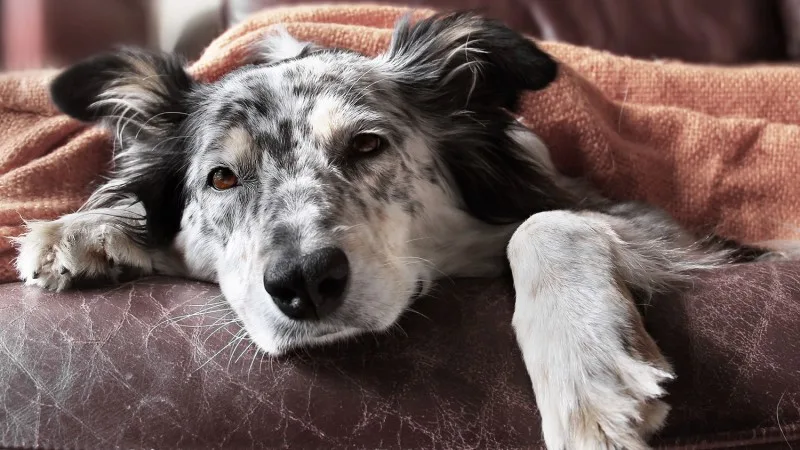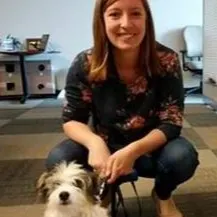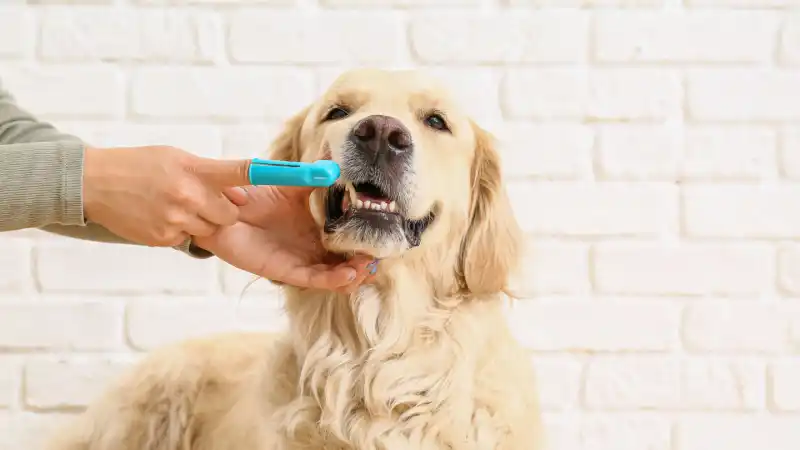What to Do When Your Dog Has Cancer
Learning that your dog has cancer can be one of the most difficult days a pet owner can face. Where do you go from there? We can help - start here.

With roughly 6 million new cancer diagnoses made in dogs every year, it’s likely that you know someone whose dog is going through treatment or you have experienced the hardship of having a dog with cancer yourself. Maybe you know one of the hard-working veterinary oncologists and oncology technicians who must give the disappointing news.
Though a cancer diagnosis can be upsetting, it does not necessarily mean the end is near. Veterinary cancer research has made great strides in recent years. With new treatment options, canine cancer patients are living longer, more fulfilled lives.
Canine Cancer Overview
There are many different forms of cancer that affect dogs; the four non-scientific categories are external, internal, bone, and blood. Cancer occurs when cells in the body grow and become abnormal. Normal cells will grow and divide in a controlled manner and will die when it’s time for them to be replaced.
Cancer cells continue to grow and divide without regulation and do not die when they should. These cells usually group together to form tumors, but sometimes cells break away from a tumor and spread to other areas of the body. A tumor can destroy the normal cells around the body and damage healthy tissue.
Many variables - such as age, toxins, environment, and genetics - can all be responsible for causing different cancers. A deficient immune system will increase a dog’s chance of developing cancer and make treatment more difficult. While certain breeds may be more likely to develop cancer, any dog can be diagnosed. About 50% of dogs over the age of 10 are diagnosed, and an estimated 1 in 4 dogs will develop cancer at some stage in their life.
Getting the News
It can be a huge surprise to owners when their seemingly fine dog is suddenly diagnosed. As the diagnosis soaks in, the questioning and second-guessing begins – “How did I not notice?” and “He didn’t even act sick.” If you find yourself at your veterinarian’s office facing such difficult news, don’t be afraid to ask for some time to process the information.
Making a Plan
Ask as many questions of medical professionals as you feel necessary. Do some research on the type of cancer that your dog has and understand all the treatment options. This is an important decision for you and your dog; you should understand your situation completely before choosing a treatment plan.
Veterinary Support Team
Pet owners who receive the diagnosis of cancer for their dogs have a great deal of difficult choices. Not all veterinarians handle the treatment of cancer. Ask your vet for recommendations of an oncologist or specialty veterinarian in the area who handles whatever treatment option you choose.
You will spend a lot of time working alongside the professionals in the oncology department. From consoling you after you receive the news until the completion of treatment, these veterinary specialists will be with you every step of the way. Depending on the response to treatment, you may see your oncology technicians every day, every week, every two weeks, and then for months to years afterwards. It is important to have a practice that you trust, as that team will be a main support for you and your dog.
How to Share the Diagnosis
Many owners of dogs with cancer are struggling emotionally, financially, and with the commitment of time dedicated to vet appointments. It can be hard to share your grief with friends and family, not to mention the people who aren’t as close. While it would be wonderful if everyone understood the bond between you and your dog, some people aren’t sympathetic to pet owners who are going through cancer. If someone you share the news with responds in a negative way, don’t feel as if you need to fight back to justify your emotions. Ask them to respect the significance of this diagnosis on your life.
Having a chance to speak with other owners going through the same thing can be beneficial. Look for support groups either online or in your community. Ask your veterinarian if they know of any groups in the area or get to know the other owners in the oncologist’s waiting room.
Keeping a Positive Attitude
Cancer treatment can be hard on patients, so try to keep the time you’re not at appointments as positive as possible. When your dog is feeling well enough, try to do activities that your dog enjoys. Consult your veterinarian for activities that are suitable for your dog’s current state of health. Celebrate progress in their treatment with fun surprises like special outings or a delicious treat. If you mope around your dog, they will pick up on it and be in even lower spirits.
After Treatment
What do you do after the treatment has ended and your dog’s cancer is in remission? Your vet will establish a schedule of check-up visits. Stick to it! If the cancer returns, you’ll want to know right away to start looking at additional treatment options. Depending on the type of cancer, there may be certain foods or medications that can slow growth of malignant cells. Ask your oncologist for recommendations.
After a Loss
For many people, dogs are more than just pets. These animals have been in their lives for many years and are considered members of the family. They have grown together, loved each other unconditionally, and depended on one another. It is difficult to lose an animal for any reason, but after the added challenges of battling cancer, the loss may feel overwhelming. Allow time to grieve in whatever way feels right. Some people believe in holding a memorial service to celebrate their pet’s life, while others prefer to grieve alone. There is no wrong way to say goodbye to your dog.
Cancer is a very difficult diagnosis, fortunately, there is a lot of research going into the disease. Follow your oncologist’s treatment plan, celebrate the positive milestones with your pup, and don’t let the diagnosis stop you and your dog from enjoying your time together!
Take some of the stress out of pet ownership with Accident & Illness Coverage through AKC Pet Insurance (underwritten by Independence American Insurance Company). Our pet insurance plans are designed to be there when you need them, allowing you to focus more on the health of your pet and less on costly veterinary bills.

Every Dog and Cat Deserves the Pet Insurance of Champions
Get prize-winning care for your pets.

Mary comes to AKC Pet Insurance with an extensive background in animal care. As a lifelong animal lover, she has a passion for promoting pet health and wellness. Mary lives in Kentucky with her orange kitty, "Cat" and her dog, " Wubbi".
READ MORE ARTICLES

